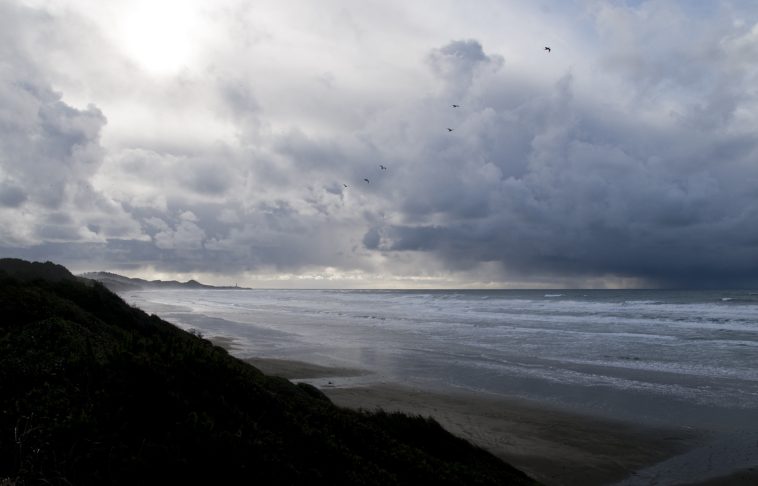The Apostrophe Blog
A while back now—egad, ten years, February 2014!—I was invited to be the Writer in the House at the Oregon Writers Colony in Rockaway Beach, Oregon. Per their website, “Oregon Writers Colony founders built the organization from a small group of writers who wanted a writing retreat at the beach into a nonprofit organization that offers support, networking, and a retreat house for writers. The annual Founders Day celebration at Colonyhouse each August celebrates the achievement of that dream.”
The wind did wildly howl and the ocean did mightily roar the entire time I spent at Colony House with other writers braving the elements. My subject for the weekend was “Reading as a Writer, Writing as a Reader—Insights for Creating and Sustaining a Writing Practice.” Below are some of the ideas I shared and the insights I’d like to think I brought to the attendees over that stormy weekend.
I started by asking a few questions:
In what ways do the authors we value as readers inform what we choose to write? How can we learn from the work of these writers to stretch our own writing muscles? To step back, evaluate, and edit our own work? How can we maintain momentum when our enthusiasm inevitably flags? How do we best confront the inevitable self-doubt, boost confidence, and learn to develop and trust the wise inner writer-voice?
What do I mean by reading as a writer?
In her 1993 Nobel Lecture, Toni Morrison said that, in her view, all “word-work is sublime…because it is generative; it makes meaning that secures our difference, our human difference – the way in which we are like no other life. We die. That may be the meaning of life. But we do language. That may be the measure of our lives.”
For me, reading is the bedrock of any writing life. That’s the message in the numerous how-to-write books on the market today. Stephen King’s prime rule is a simple one: Write a lot and read a lot. Margaret Atwood believes we need to be reading widely, deeply, and constantly. Ask other professionals, or any of the many who have written about how and why we write. I’d say it’s edging close to 99% who say you have to be a reader first and foremost and for the duration. That reading is the necessary foundation for anyone who wants to learn how to write — and write well.
In her book, Ordinary Genius: A Guide for the Poet Within, Kim Addonizio goes so far as to say that reading is food to a writer, that without reading, we cannot live: “If you’re afraid that reading will make you less original, don’t be. Falling under the spell of—or reacting against—other writers is part of what will lead you to your own work.“
Reading matters because readers matter. As writers we seek audience, people who are willing to make the choice to spend their precious time sitting with our work rather than doing something else— like learning how to walk a tightrope or play polo on a unicycle. In her 1938 classic, If You Want to Write, I think Brenda Ueland hits on something elemental when she says, “Give your work to some person or thing as you do it— the river, God, a dead person, your inner self.”
And writing as a reader? How do we read as writers?
In Becoming a Writer, Dorothea Brande devotes an entire chapter to the subject. Her recommendations?
Read everything twice, for enjoyment and critically. Read with all your faculties on alert. Pay attention to the rhythm and pace and vocabulary and where the writing zings, where it feels and reads fresh. After you’ve finished, summarize what you read then pass judgment on it. Pull out any passage that speaks to you, maybe even copy it out. Ask many, many questions. Why did you like what you did? Where were you astonished? Why? Where could you have closed the book and given up? Why?
Of course, not all of us have all the time in the world to read, let’s say, our favorite novel, War and Peace, three times in a row. But I still think Brande’s advice is worth taking to heart. In whatever time we devote to reading, we can bring our attentive, best selves to the task.
To read as a writer is to read intelligently, viscerally, emotionally, every sense alert and open to possibility, to spells cast and language unleashed. For me, the written word as shaped into text, story, poem, is a construction, an artifact, and an objet d’art. I am a reader who cares deeply about the word. I read to be awestruck by, oh, technique, linguistic dexterity, narrative strategy and structure, elegant sentences, and artful orchestration of craft. I read to be surprised.
There was much, much more to my talks that I share with my fellow writers that Valentine’s Day weekend in Rockaway Beach. I will go through my notes and cull more wisdom and insights for future Apostrophe blog posts.
The public domain image above was taken by the U.S. Fish and Wildlife Service as a storm was approaching the Oregon Coast wildlife refuges in December 2008.
- The Summer of Our Discontent - August 27, 2025
- Poem-a-Day Publication at Second Coming - August 22, 2025
- The Running List… - August 21, 2025

